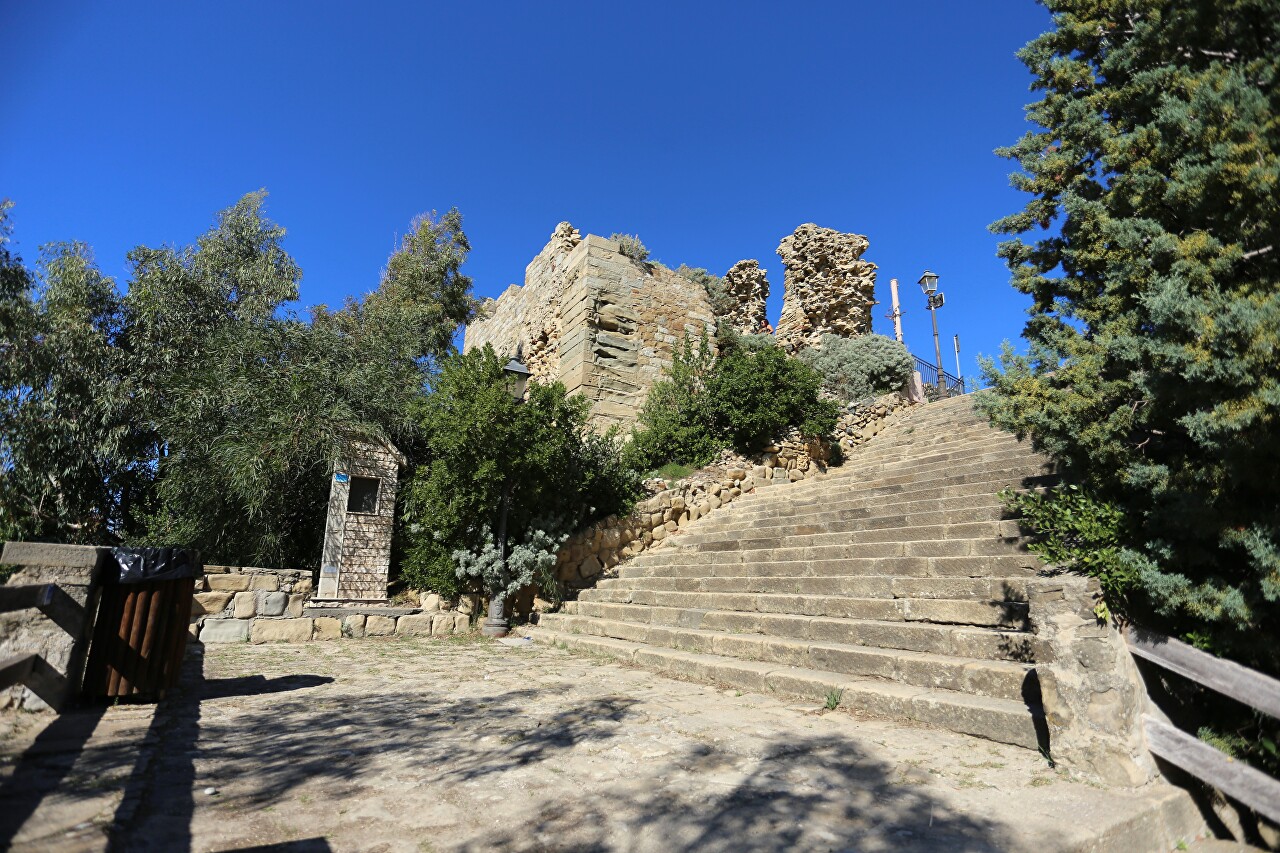The Way of the Cross on Monte della Madonna. Capo d'Orlando
Cape Orlando, which gave the name of the town, is far out into the Tyrrhenian Sea, it is crowned by a rocky hill about a hundred meters high, visible from anywhere in the city.
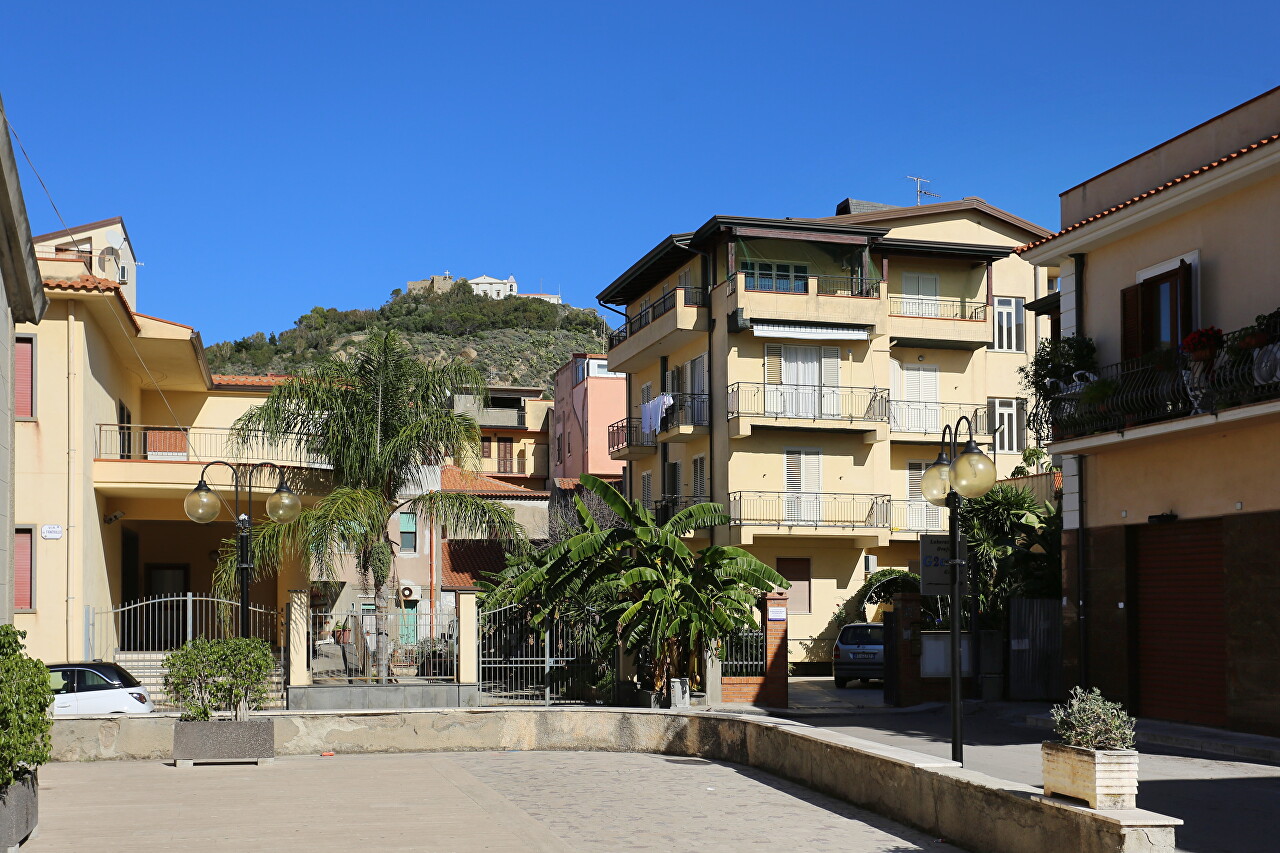
At the top of the mountain named Monte della Madonna are the ruins of a 13th-century castle and the Sanctuary of the Virgin Mary. These are the main attractions of the city, and the first thing I did from the train station was go there.
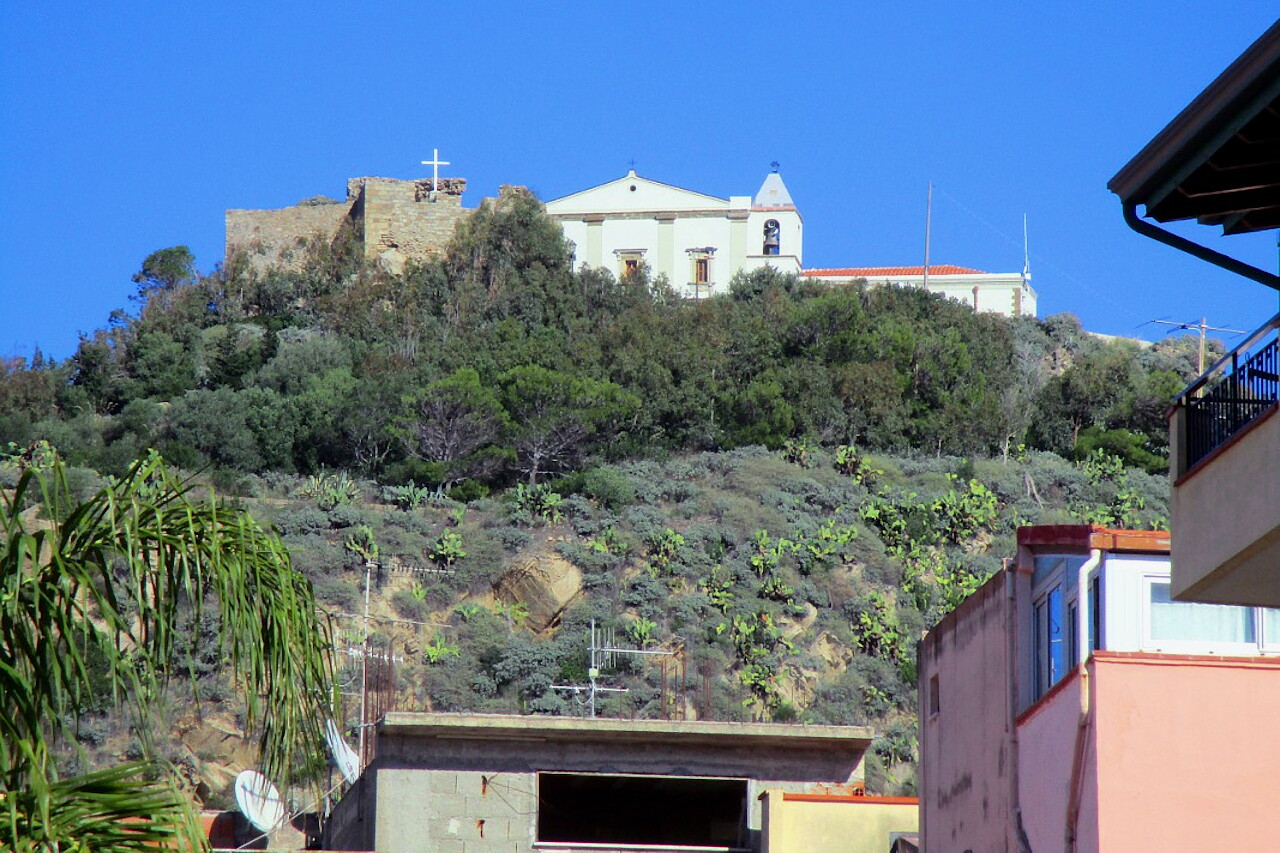
I visited Capo d'Orlando on my way from Cefalu to Messina, stopping here for a couple of hours. There was no luggage room at the Capo d'Orlando train station, of course. In Italy, they are only available at train stations in large cities and, by the way, for a completely insane price. There was a faint hope of leaving the backpack at the tourist information center, which is located on the embankment, about a hundred meters from Monte della Madonna, but I found it closed due to Sunday. Therefore, I had to carry all my little things with a total weight of 17 kilograms on myself, including on the mountain. A wide walkway with cracked gray concrete steps leads up to the top.
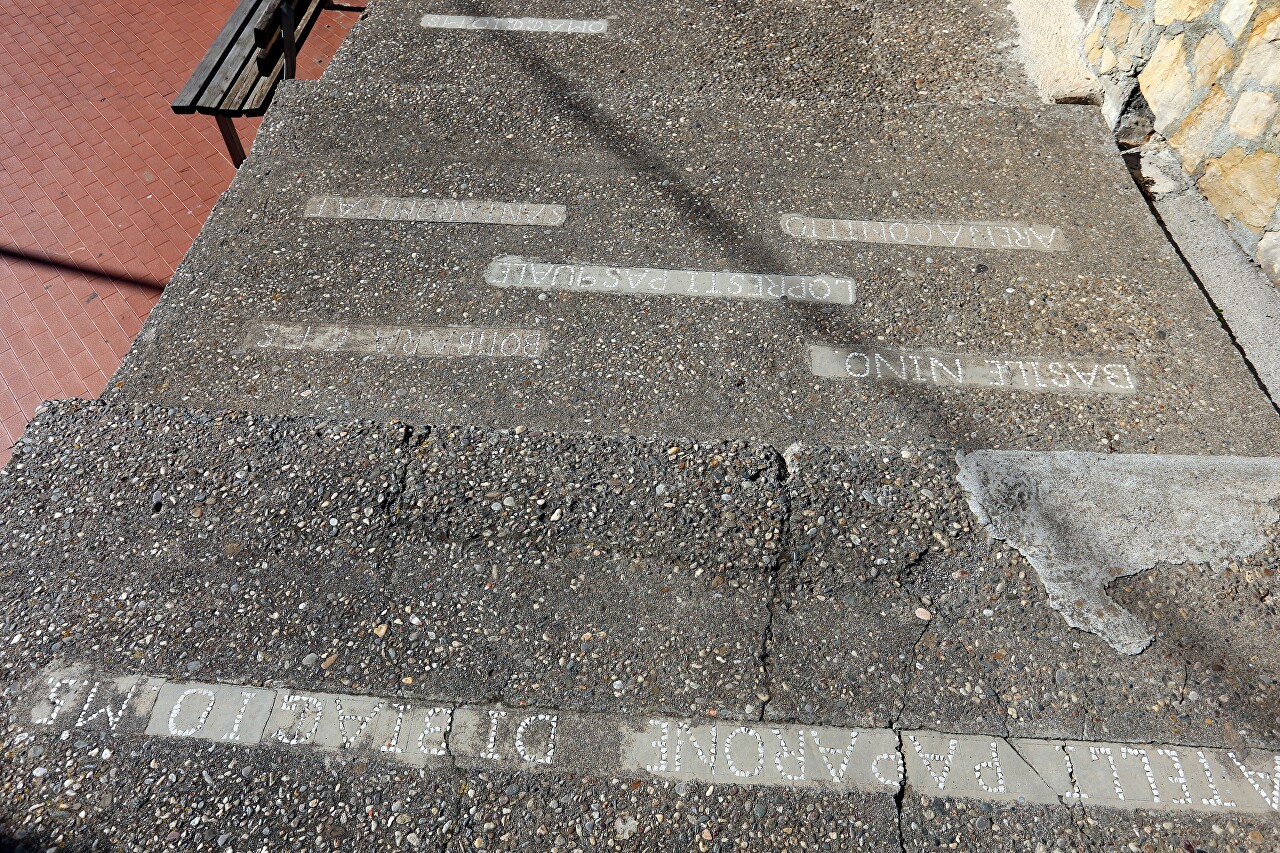
At the entrance to the staircase, you can see the names of parishioners who made a financial contribution to the development of Monte della Madonna laid out with small stones.
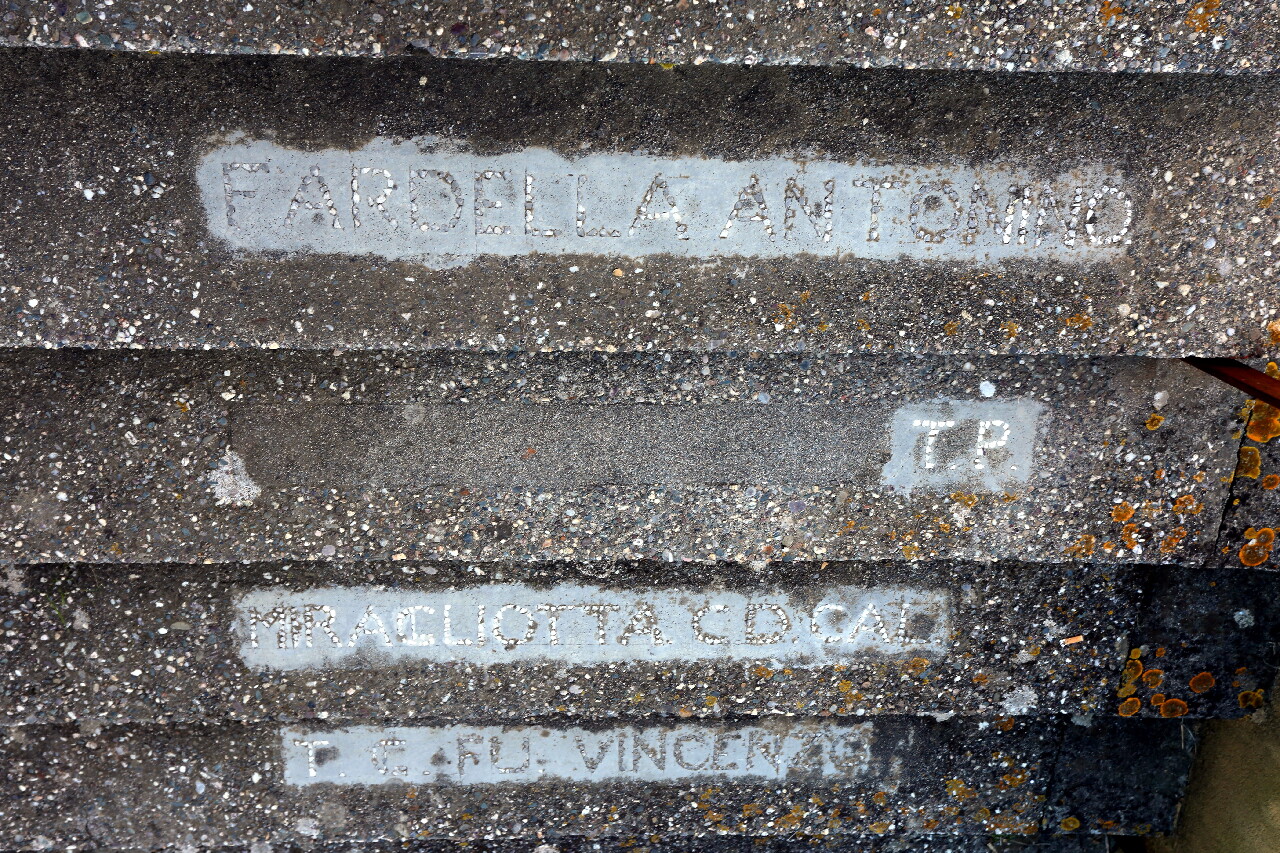 When I reached the first landing, which was shaded by trees, I took a short break and trudged up in the hot sun. Although
today was November 1, the sun shone completely summer-like, there was
no wind, and the air temperature, according to my feelings, clearly
exceeded 30 degrees Celsius. I
must say that while I crawled to the top, panting on each platform,
some local resident, who did not look like a gym student at all, did
this route three times there and back without stopping or visible
tension.
When I reached the first landing, which was shaded by trees, I took a short break and trudged up in the hot sun. Although
today was November 1, the sun shone completely summer-like, there was
no wind, and the air temperature, according to my feelings, clearly
exceeded 30 degrees Celsius. I
must say that while I crawled to the top, panting on each platform,
some local resident, who did not look like a gym student at all, did
this route three times there and back without stopping or visible
tension. 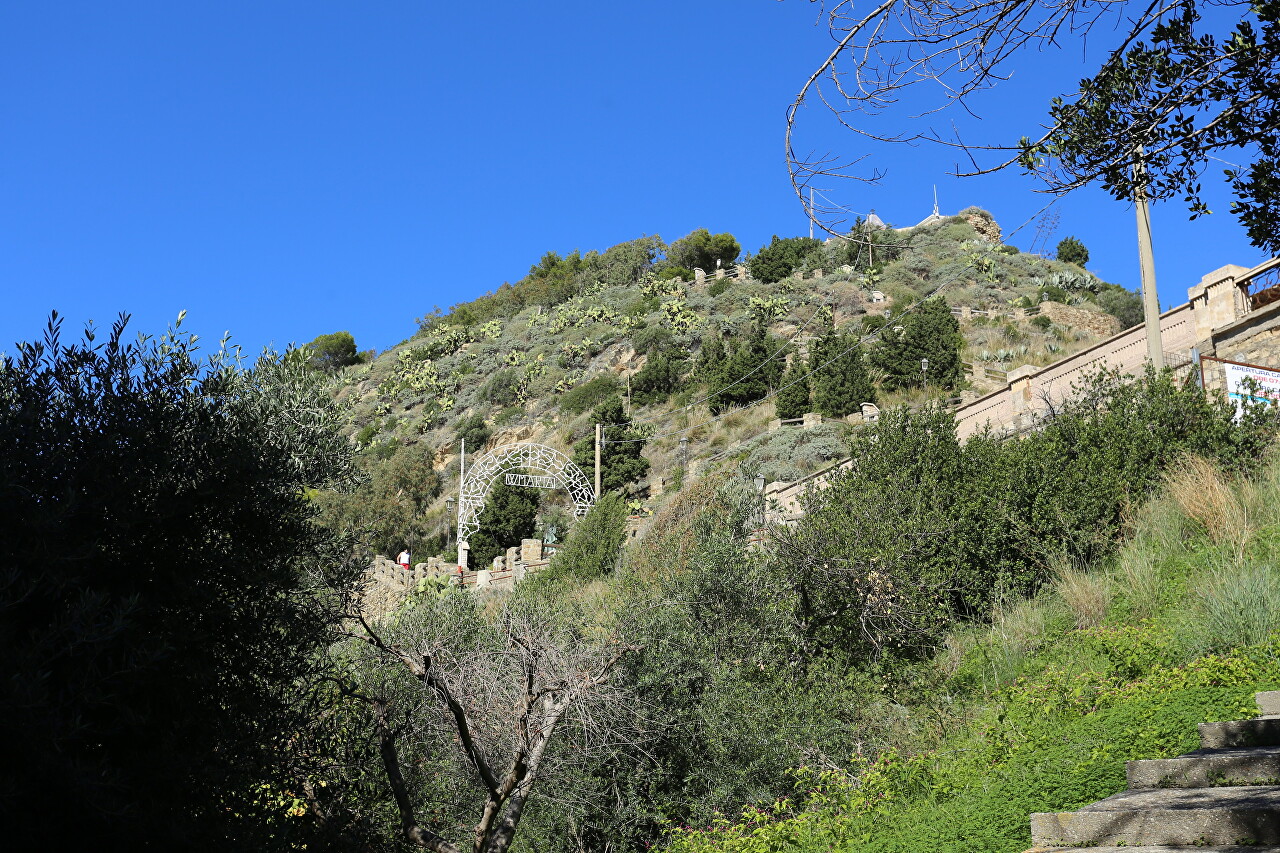
The staircase that runs down the mountainside starts under an openwork arch. It can be reached by car via del Porto.
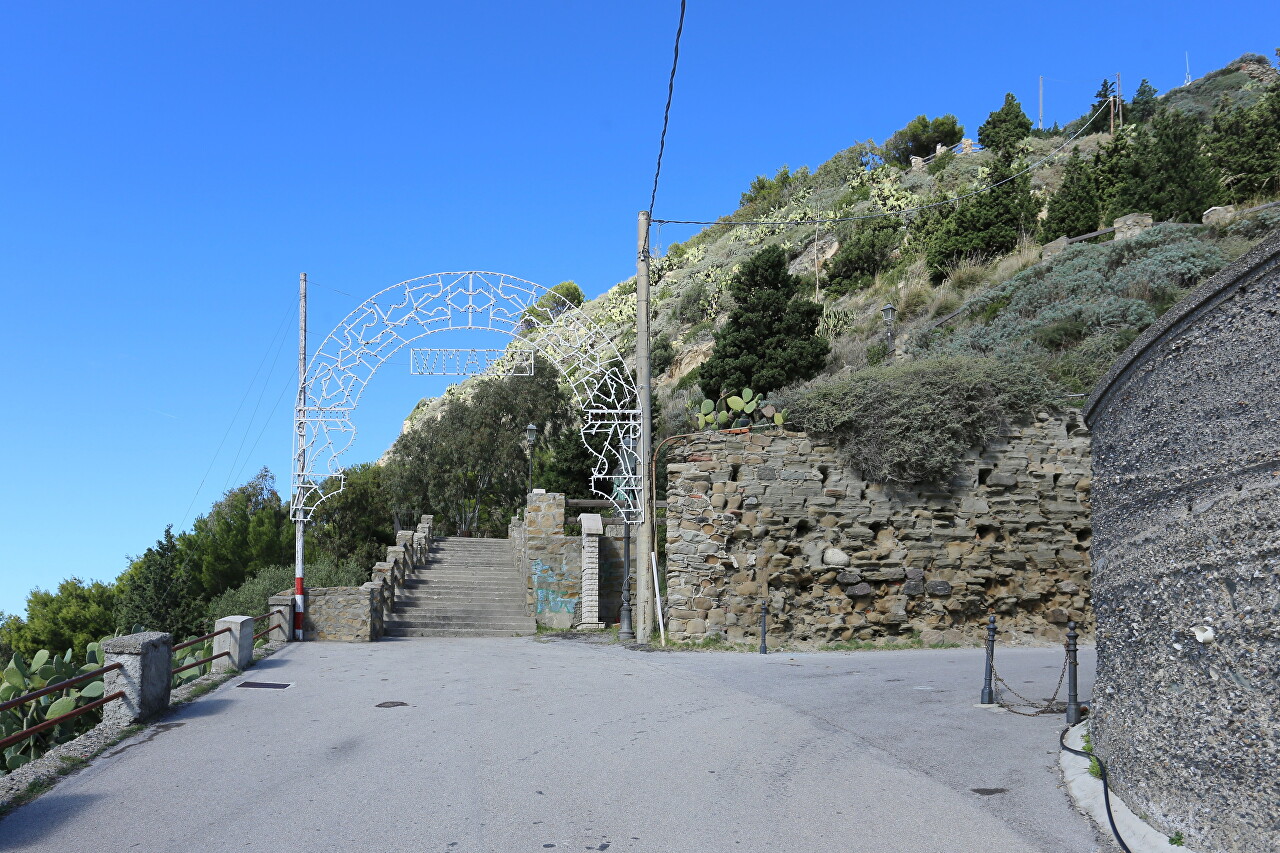
To the right of the arch is a small parking lot, where you can see an old steam engine, such machines have become a symbol of the era of industrialization. Capo d'Orlando was one of the centers of sugar production and steam engines were the main driving force until the 20-30s of the twentieth century, when they were replaced by electric motors.
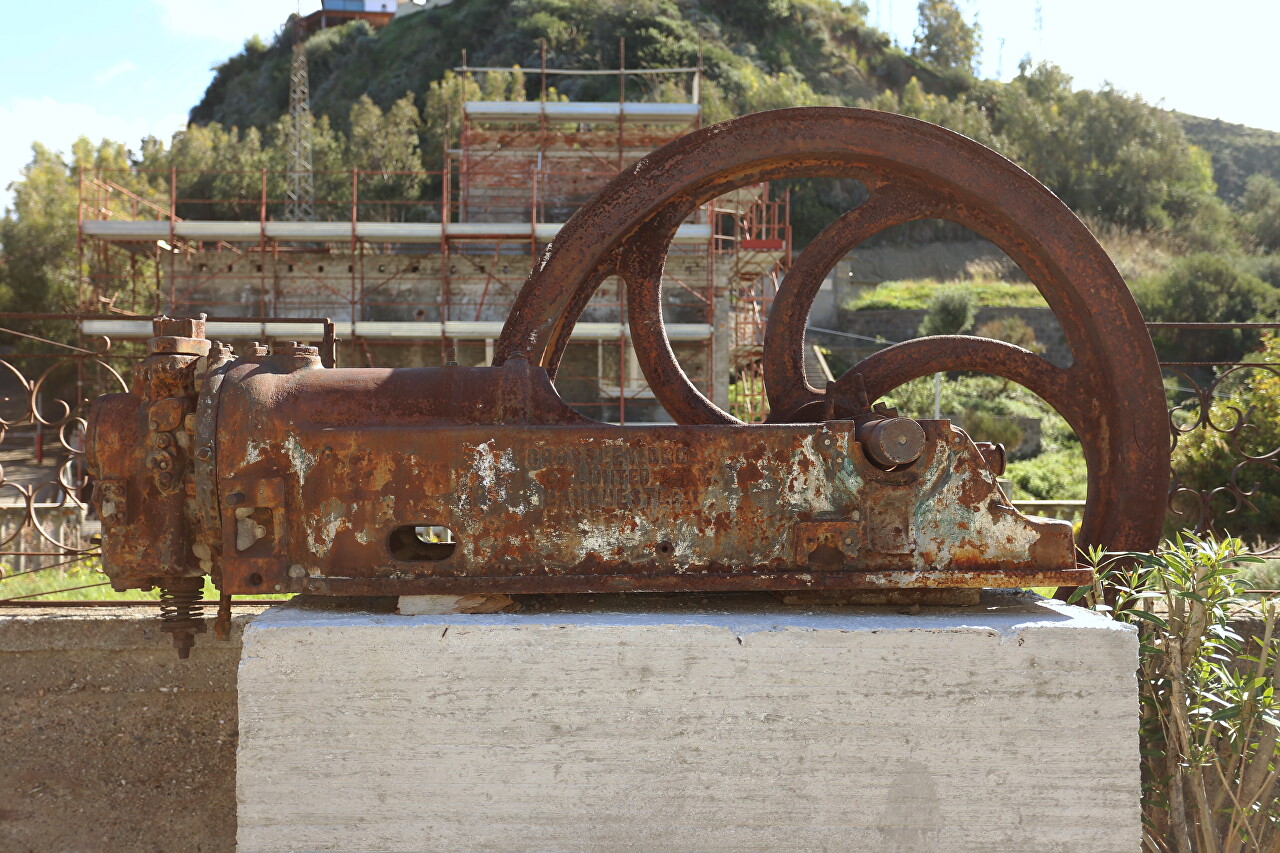
There is also an old wrought-iron gate leading to a grassy wasteland. This is all that remains of the luxury villa that once stood here.
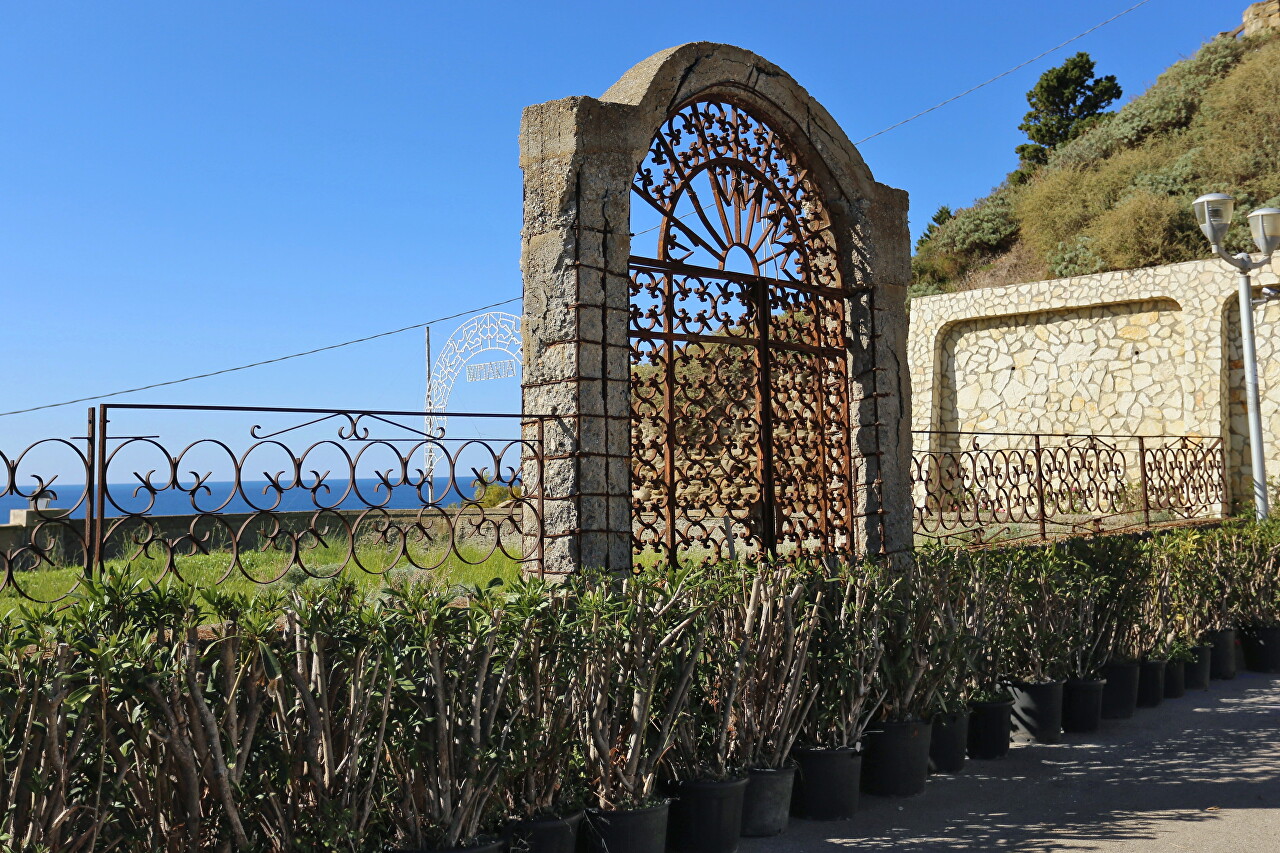
From the car park, you can admire the chain of Aeolian Islands (Isolas Eolie) stretching along the horizon.
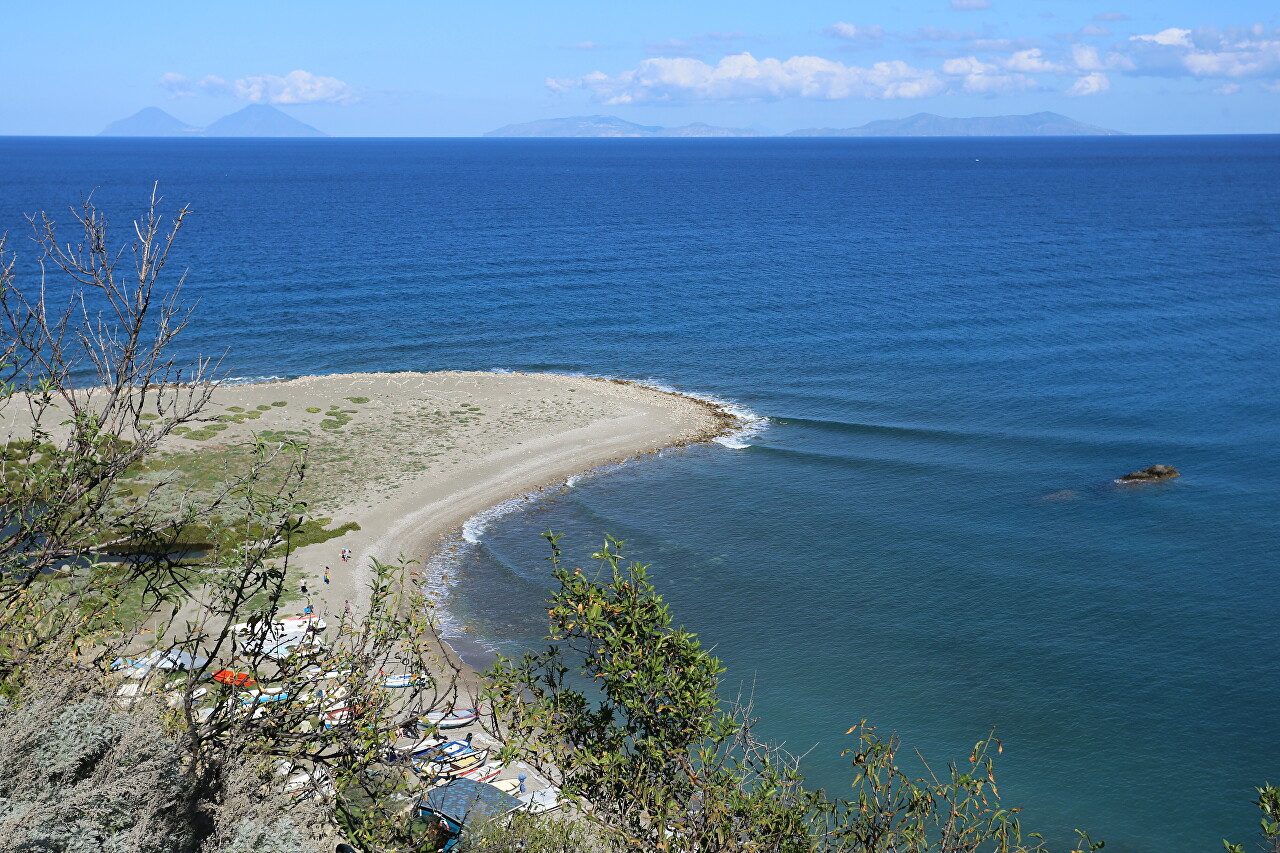
On the eastern side of the cape is the Bay of San Gregorio, whose shores form steep mountain slopes.
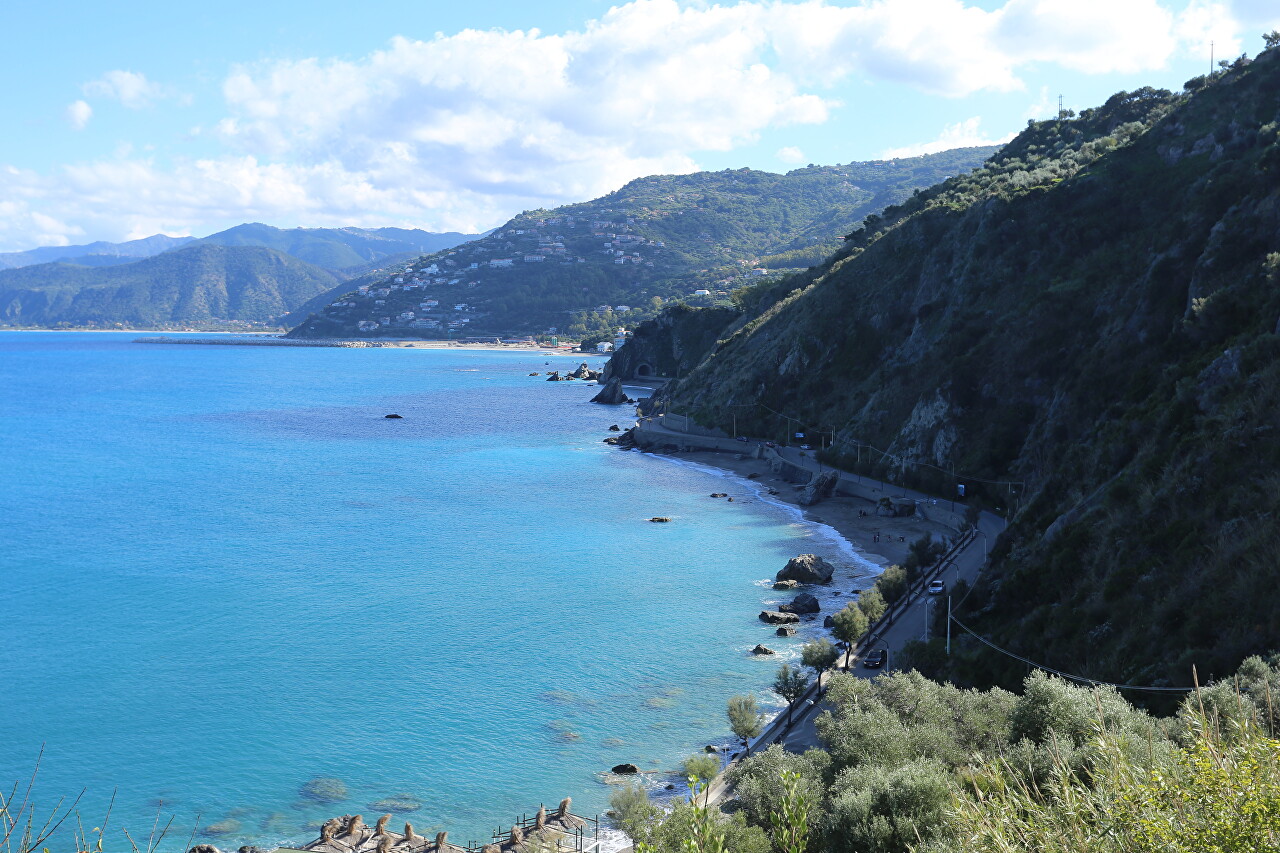
To the right of the arch is an ancient wall of flat stones.
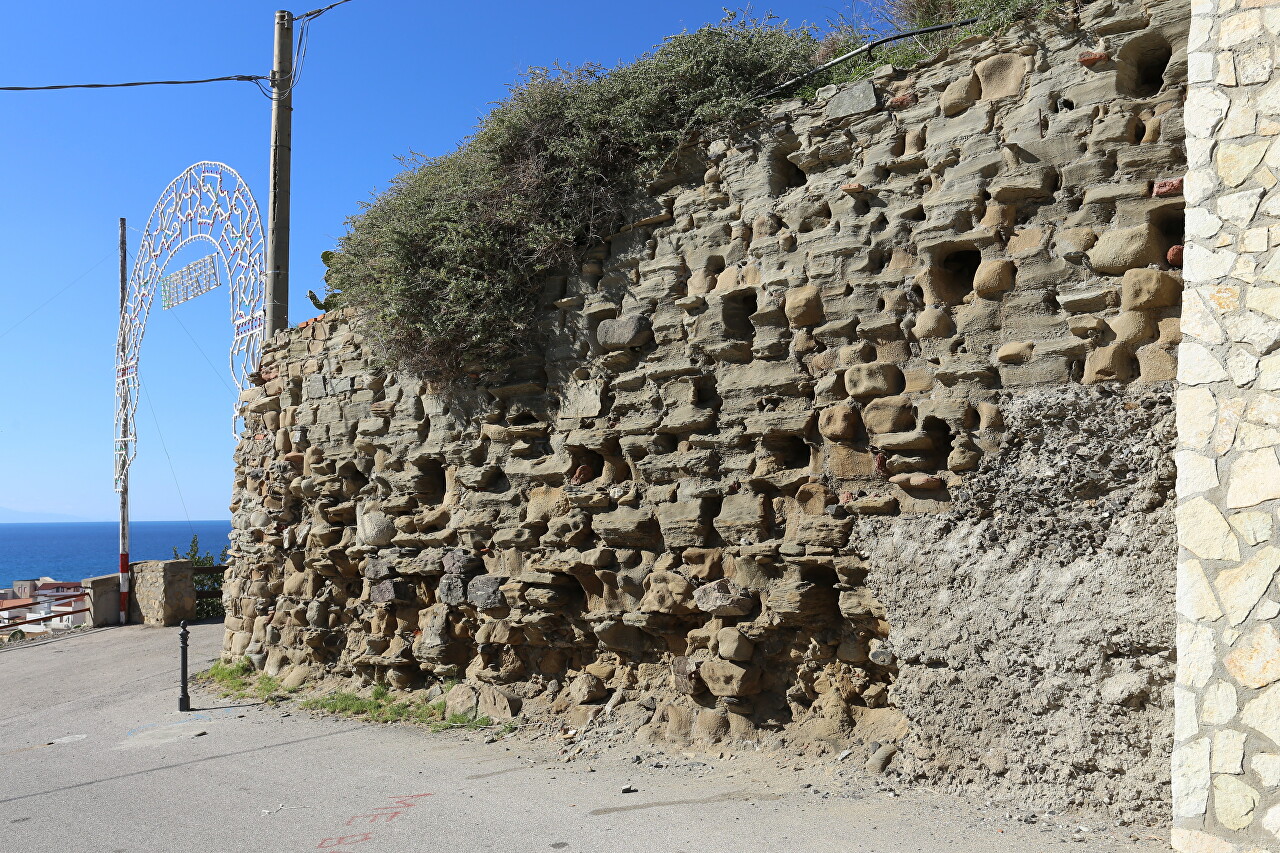
Between the stones were numerous niches, the purpose of which was a mystery to me .
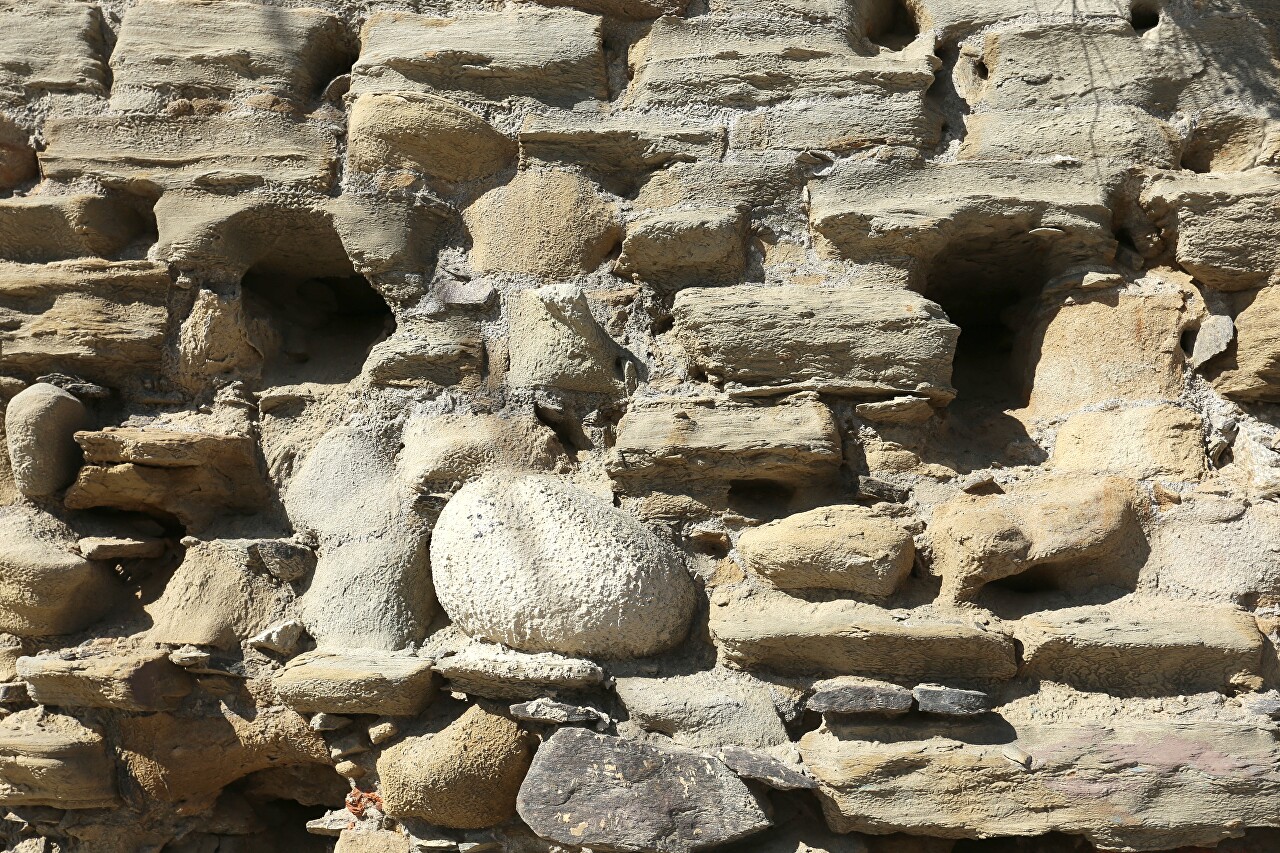
Obelisks with bas-reliefs depicting biblical themes are installed on the platforms of the stairs leading to the top. Such images often adorn the stairs leading to mountain churches, they remind of the Ascent of Jesus to Calvary, so these stairs are often called the Way of the Cross. In the lower part of the plinths, you can see signs "in memory of...", this is how the memory of people who donated their funds for the arrangement of the stairs is perpetuated.
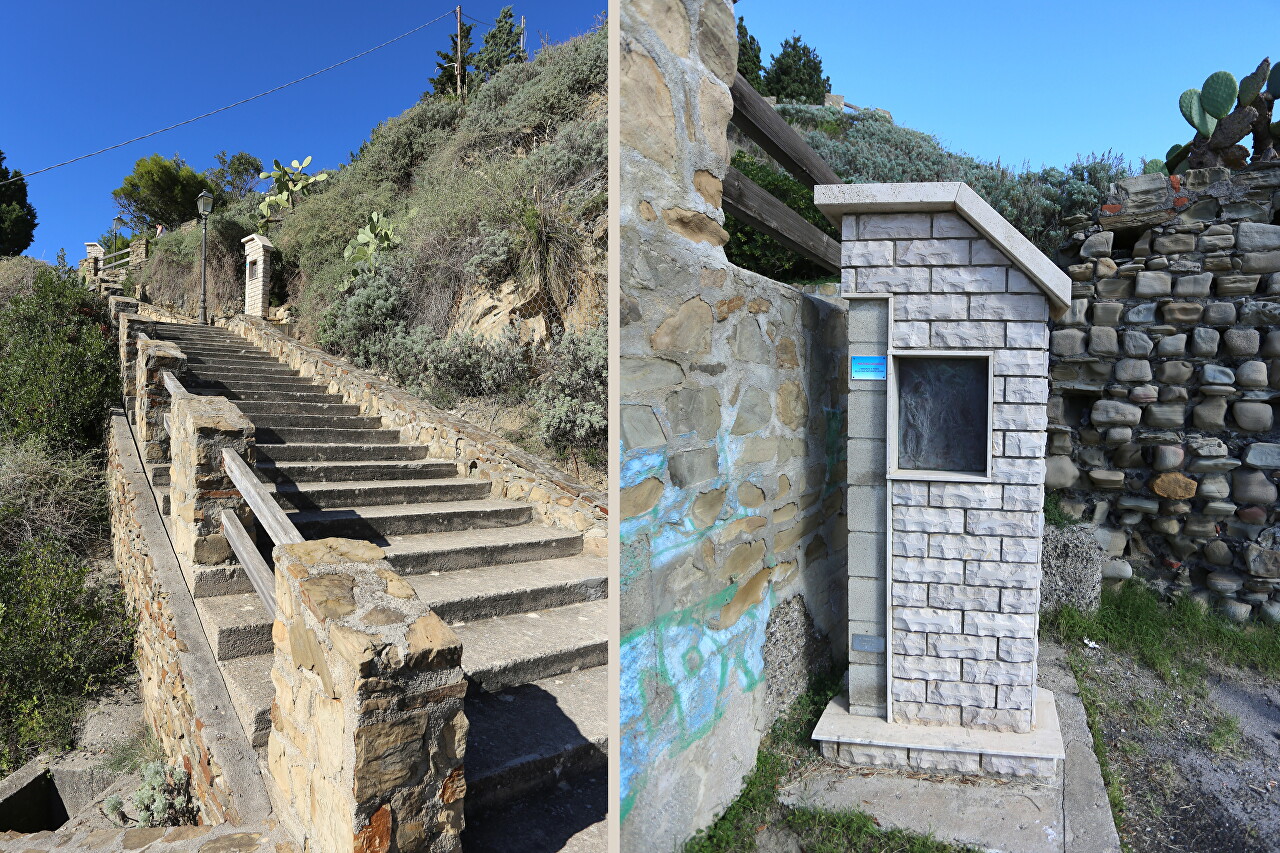
Bas-relief depicting the birth scene of Jesus.
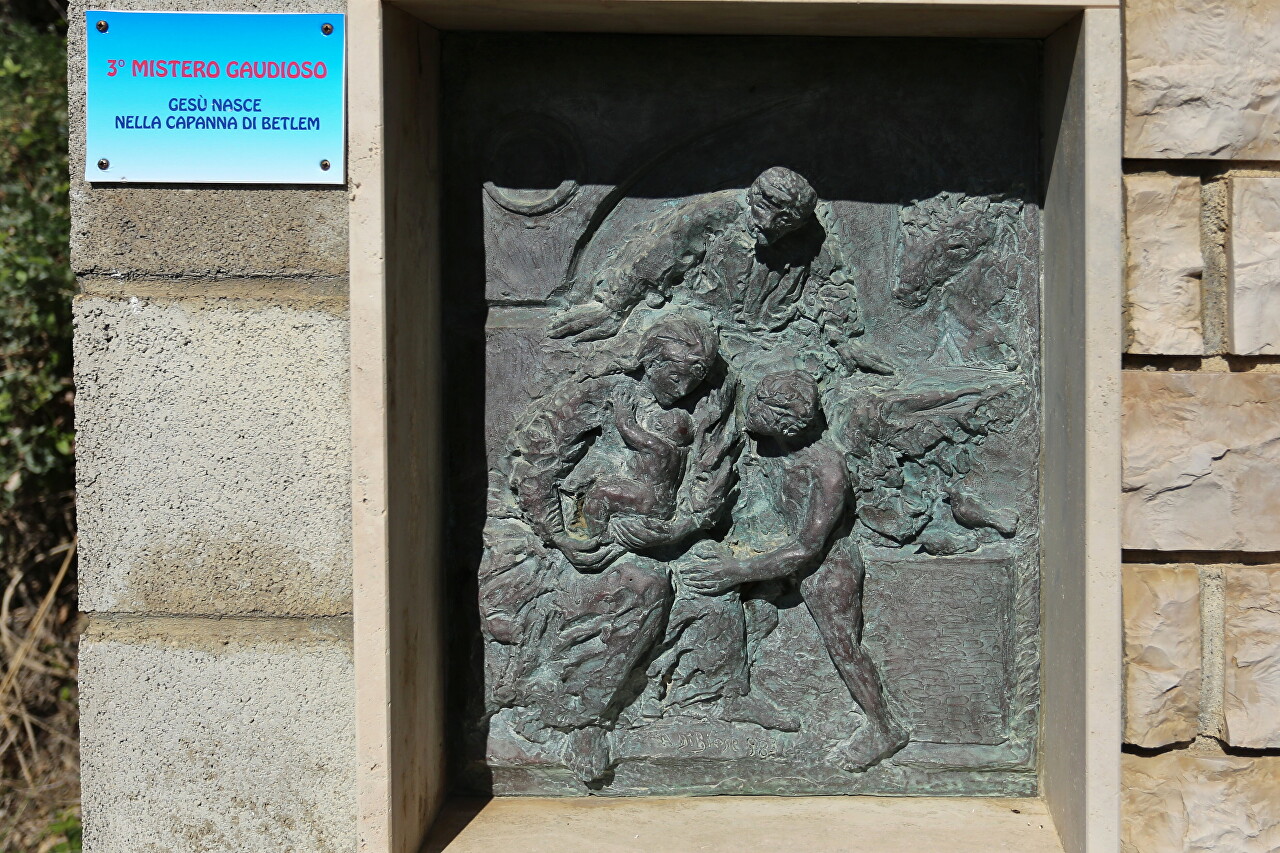
This bas-relief depicts a scene from the Gospel of Luke 2: 41-52, where the boy Jesus was lost and then found in the temple.
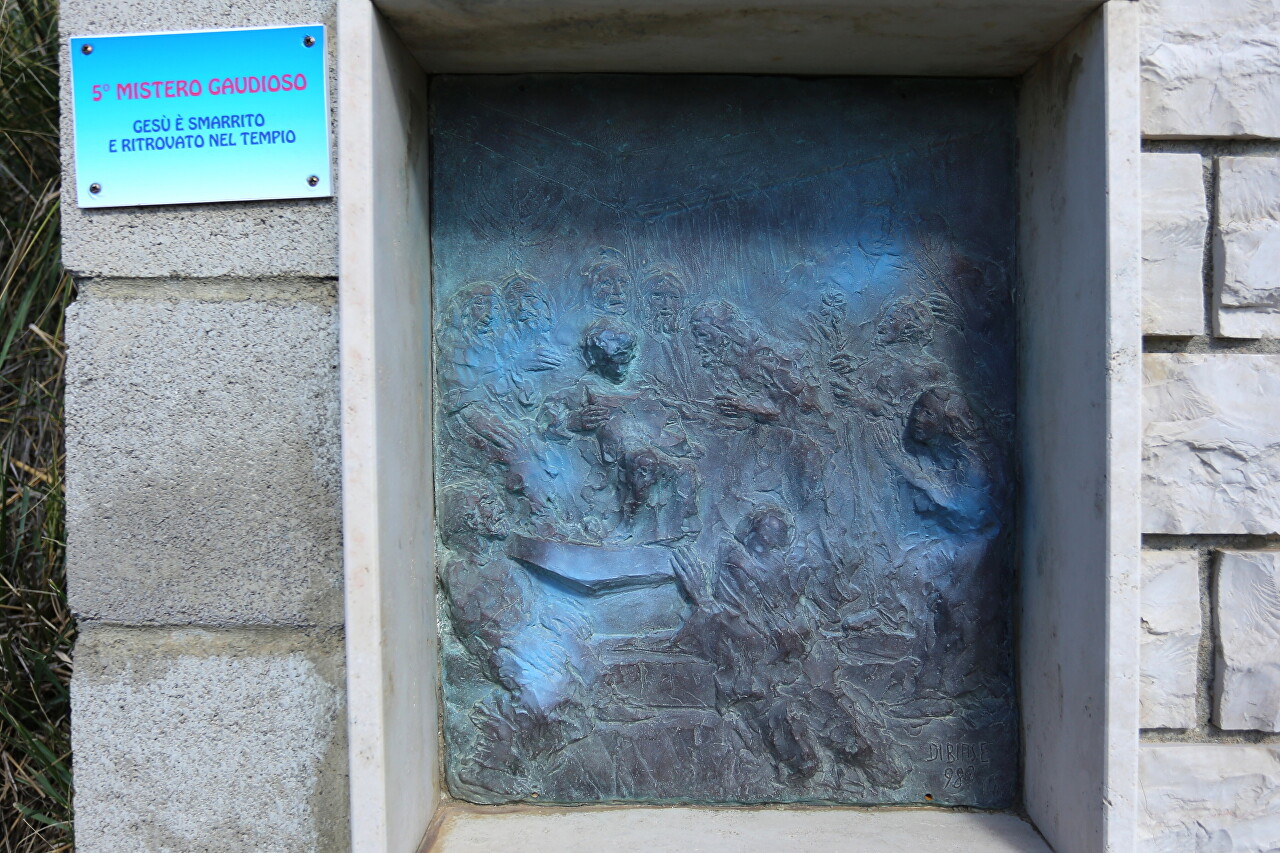
On one of the sites stands a monument to Saint Kono of Naso, who, according to legend, brought to this place a wonderful statuette of the Virgin Mary.
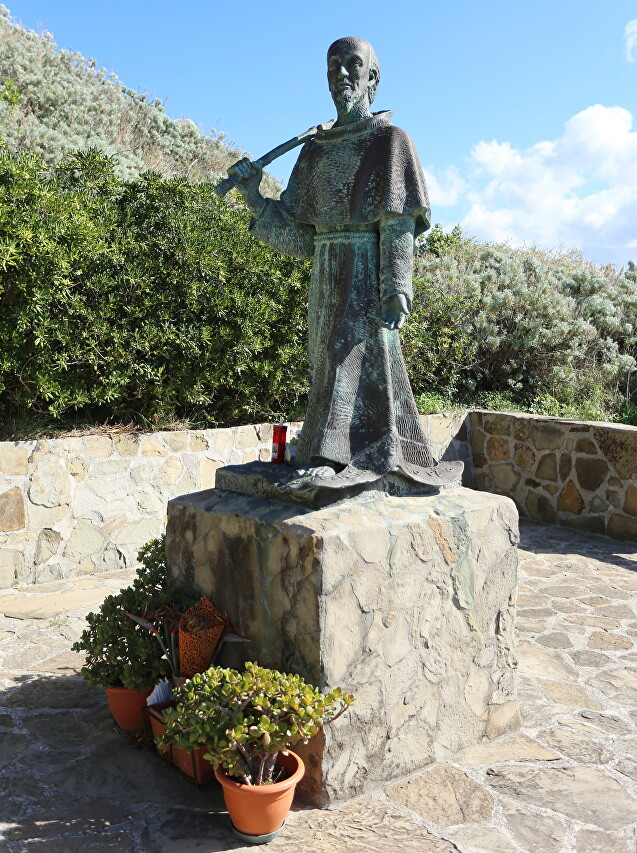
On the way to the top of Monte della Madonna, you can enjoy a beautiful view of the San Gregorio Bay.
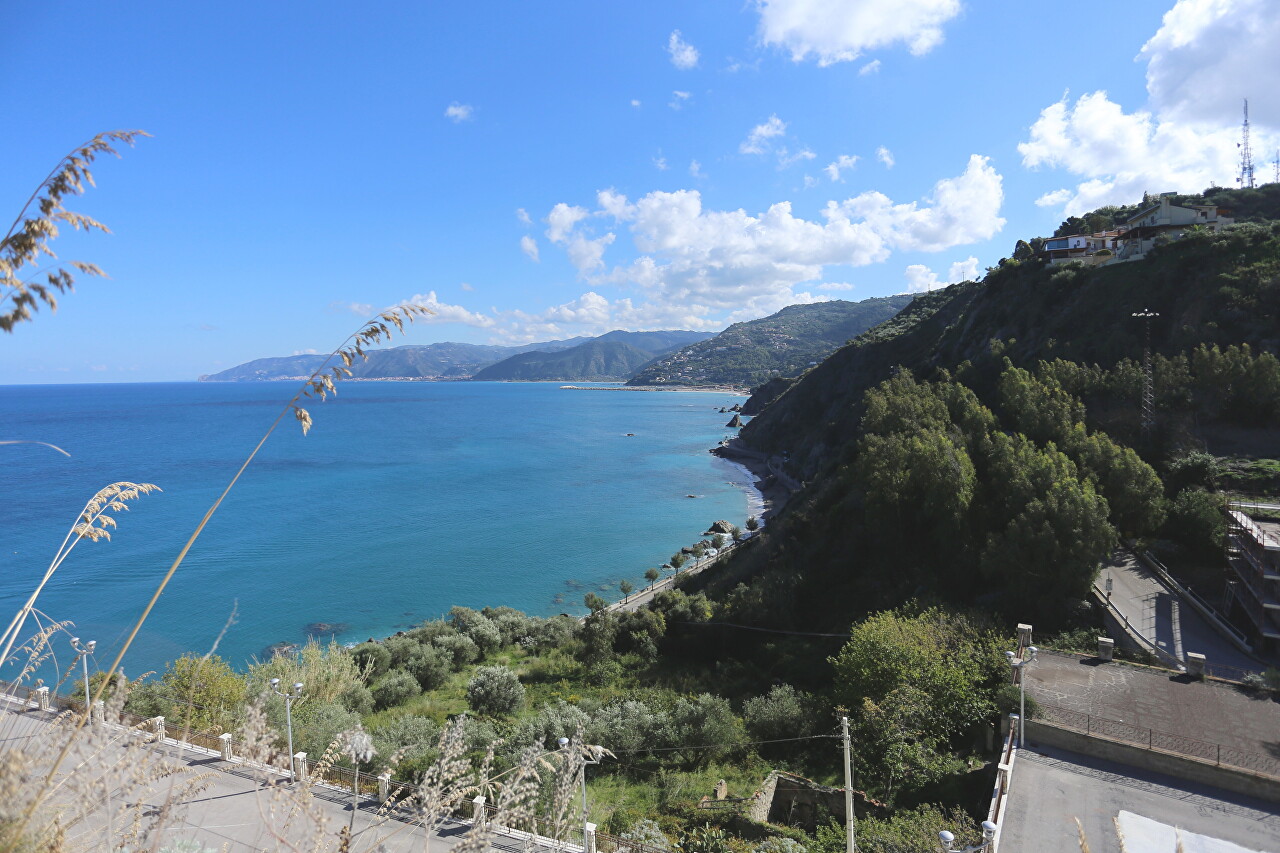
To the east, the bay is bounded by Capo Calavà.
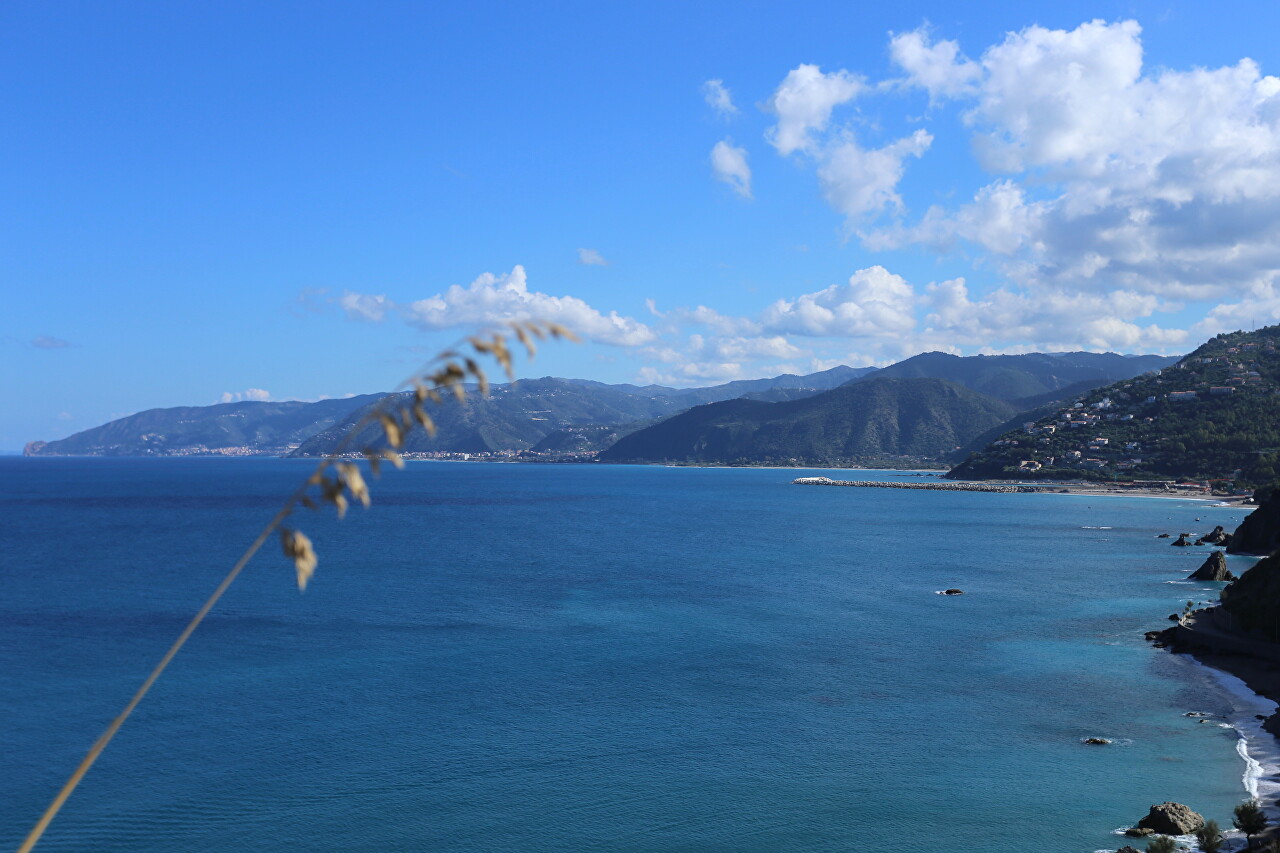
If you look to the west, you will see the streets of the city, which is pressed to the sea by steep mountain slopes.
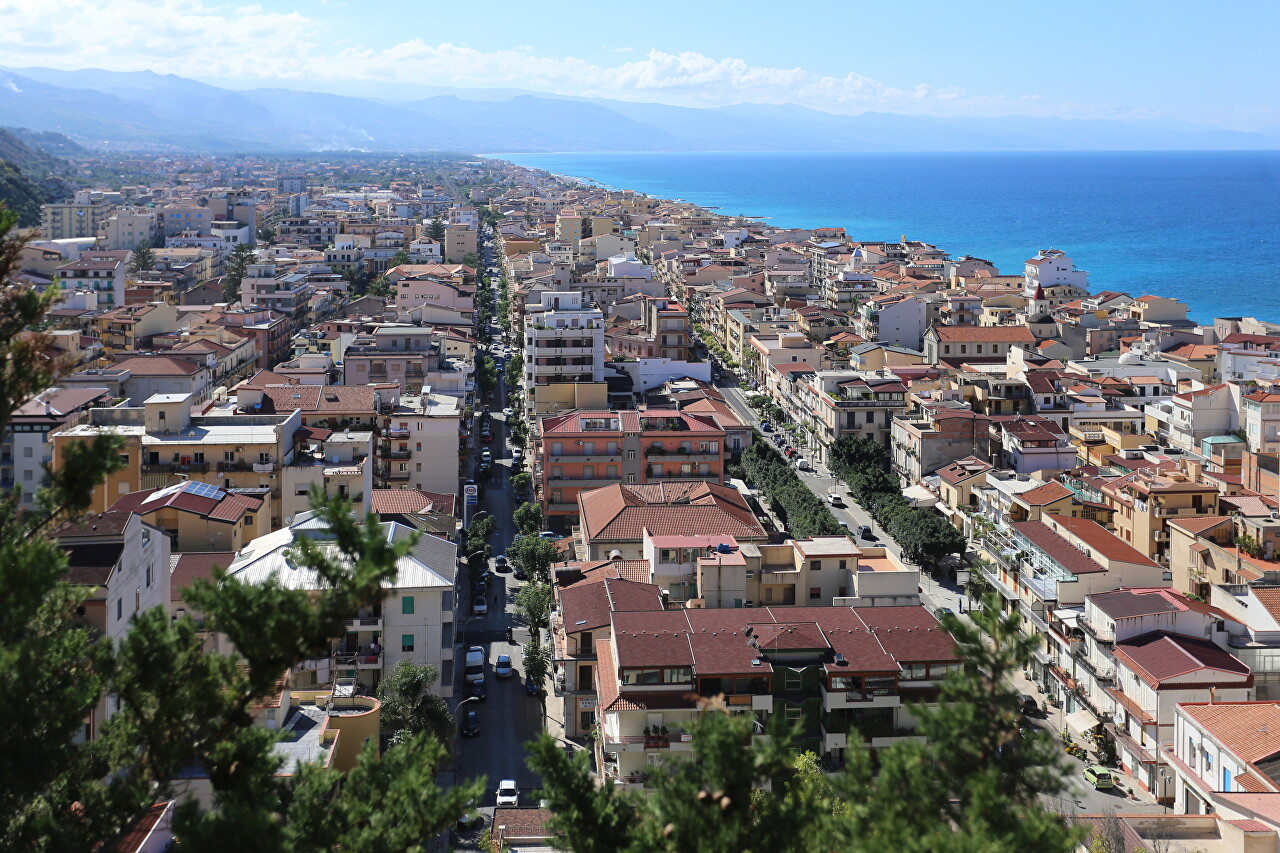
Along the coast stretches the embankment and beaches.
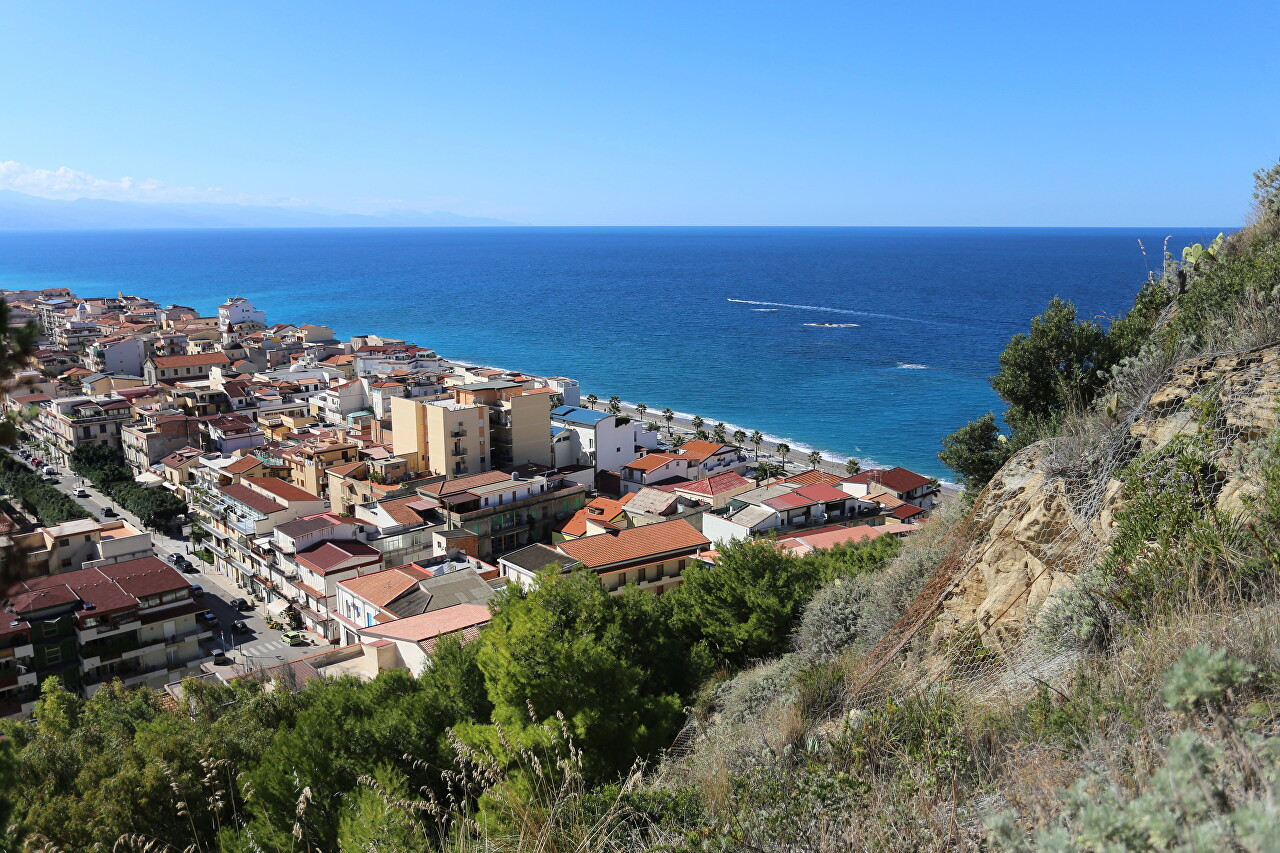
In the distance, through the blue haze, I can see Cape Cefalu, where I spent the previous two days.
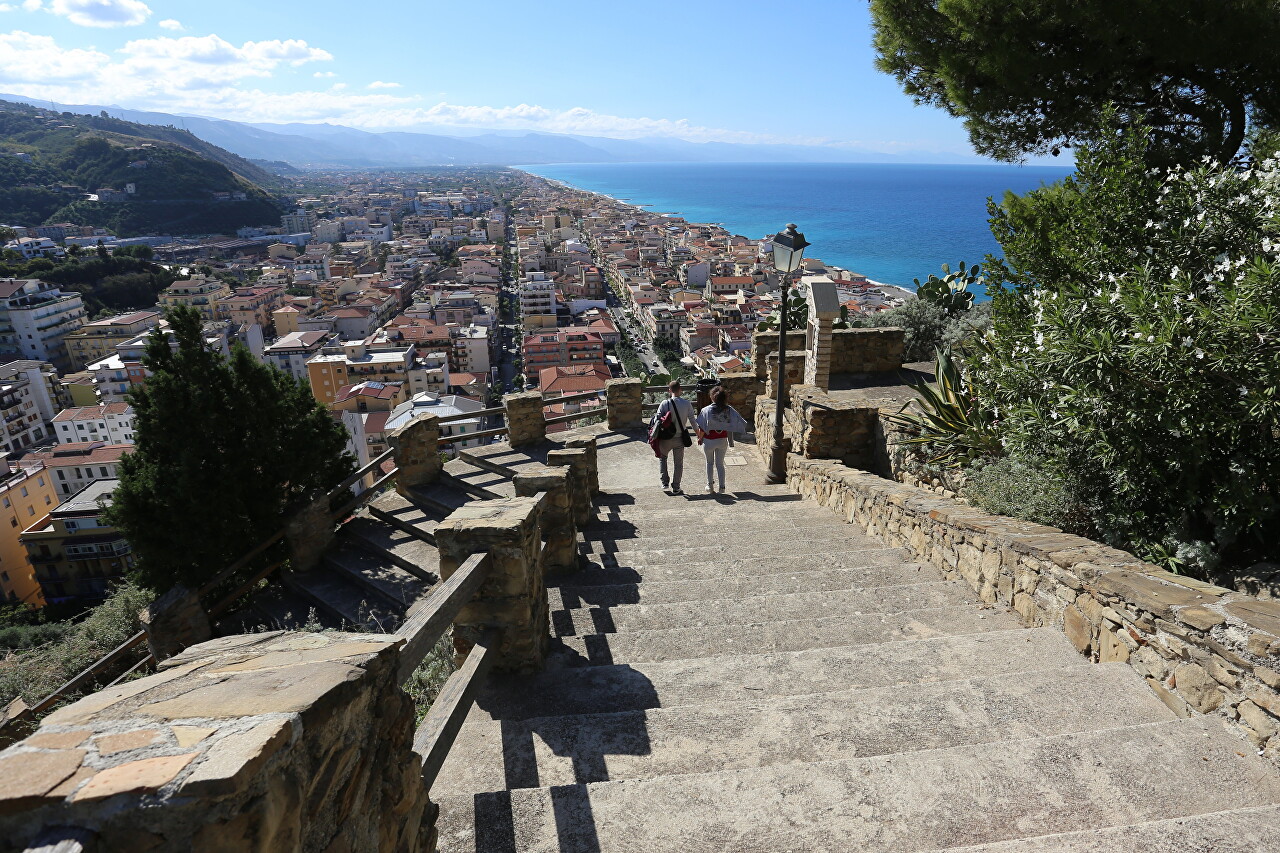
On the slopes of the mountain grow fragrant herbs: myrtle, mastic, artemisia (wormwood), catnip, capers, dill, rosemary, acanthus, even in late autumn exuding odors.
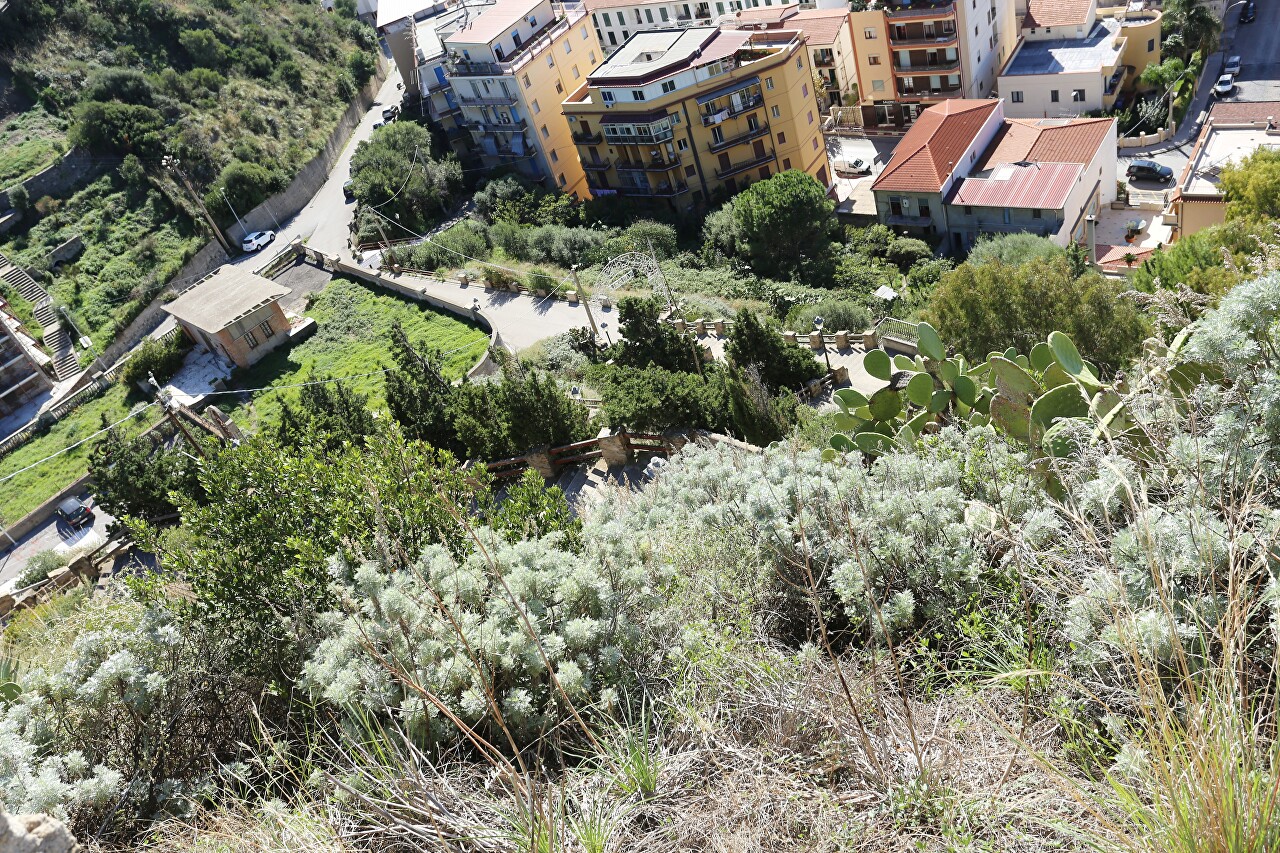
One more flight of stairs and I was at the top, at the ruins of the Castle d'Orlando.
